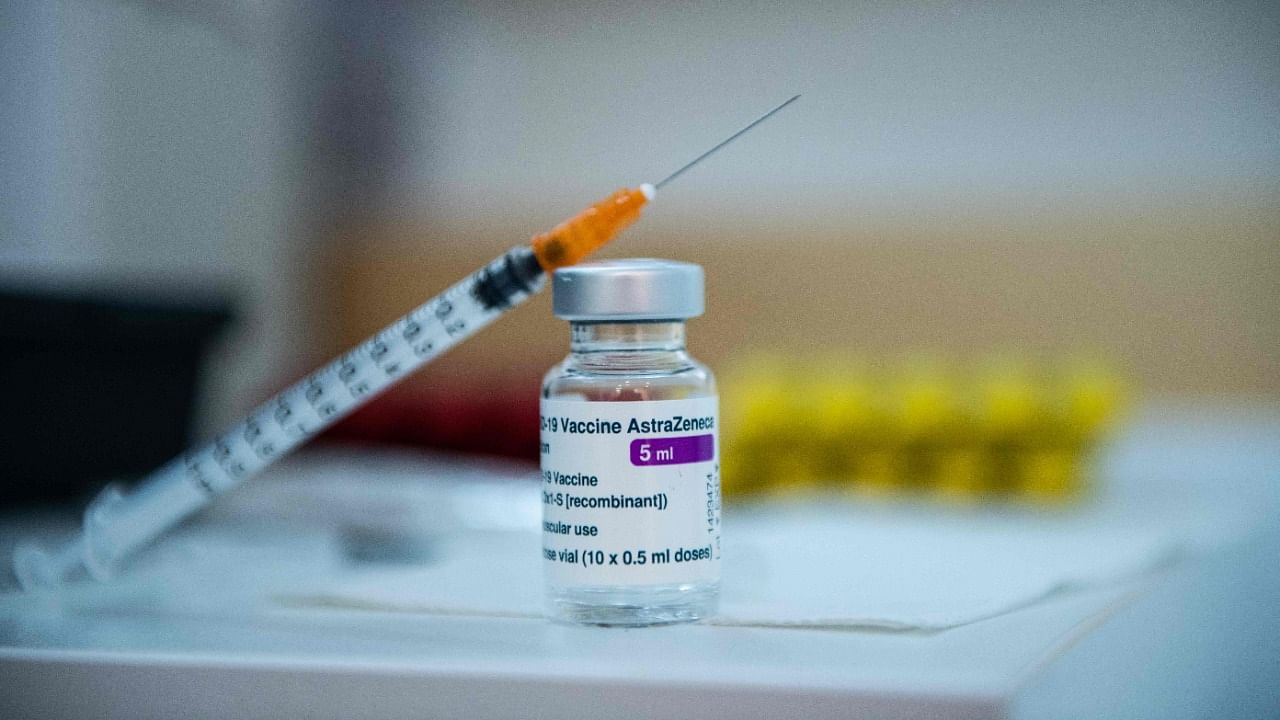
Millions of coronavirus vaccine doses are in cold storage in the US that can't be injected in the states because they are not yet approved by the Food and Drug Administration, but the Biden administration is not allowing them to be sent overseas, where American allies are struggling to get enough doses for vulnerable populations.
The two-dose vaccine from AstraZeneca has received emergency approval from the European Union and World Health Organization, but not in the US. Now US partners are prodding President Joe Biden to release the supply, noting that the administration has lined up enough doses of the three already-approved vaccines to cover every American adult by the end of May and the entire US population by the end of July.
AstraZeneca said that the US-produced vaccines are “owned” by the US government and that sending them overseas would require White House approval.
“We understand other governments may have reached out to the US government about donation of AstraZeneca doses, and we've asked the US government to give thoughtful consideration to these requests,” Gonzalo Viña, a spokesman for AstraZeneca, said in a statement.
EU member states' ambassadors this week discussed the challenge of accessing US-produced doses of the AstraZeneca shots. The German government said on Friday it was in contact with US officials about vaccine supplies, but stressed that the European Commission had the lead when it comes to procuring shots for member states.
Biden and European Commission president Ursula von der Leyen have directed representatives to discuss supply chains in the vaccine production.
“Hopefully, we will be in a position on both sides of the Atlantic to ensure that sufficient quantities of vaccine doses are distributed out in line with the schedule so as to complete the vaccination campaigns,” EU commission chief spokesman Eric Mamer said.
Even though it is not approved in the US, well over 10 million doses of AstraZeneca's vaccine are stockpiled in the country for domestic use and cannot be exported under the terms of the company's agreement with the federal government.
“We have a small inventory of AstraZeneca so if approved, we can get that inventory out to the American people as quickly as possible,” White House Covid-19 coordinator Jeff Zients said Friday, saying the US was following the same procedure it used for the already-approved shots.
Drug manufacturers that received federal assistance in developing or expanding vaccine manufacturing of doses were required to sell their first doses to the US In the case of AstraZeneca, whose vaccine was initially expected to be the first to receive federal emergency use authorization, the US government ordered 300 million doses — enough for 150 million Americans — before issues with the vaccine's clinical trial held up its approval in the US
The company said this month it believes it will have roughly 30 million doses available to the US government by the end of March, and another 20 million by the end of April.
As foreign regulators have moved ahead with approval for the shot, the US has not dropped its contractual claim on the initial doses produced in the US.
That policy has also come under criticism from US neighbours like Canada and Mexico, which have been forced to seek vaccine manufactured on a different continent, rather than across the border. Its enforcement comes as the Biden administration has purchased enough doses of Moderna, Pfizer and Johnson & Johnson to be able to inoculate 150 million more people than its population by the end of the year.
The US has also ordered 110 million doses of vaccine from Novavax, which is expected to file for emergency approval as soon as next month.
“We want to be oversupplied and overprepared,” White House press secretary Jen Psaki said Wednesday, saying Biden wanted contingencies in the event of any unforeseen issues with the existing production timeline.
“We still don't know which vaccine will be most effective on kids,” she added. “We still don't know the impact of variants or the need for booster shots. And these doses can be used for booster shots as well as needed. Obviously that's still being studied by the FDA but again we want to be overprepared.”
Pressed Thursday on the AstraZeneca situation, Psaki said, “We have conveyed privately what we've conveyed publicly, which is that our focus is on ensuring the American people are vaccinated."
AstraZeneca's 30,000-person US trial didn't complete enrollment until January. The company hasn't given any hints of when initial results might be ready beyond an executive with AstraZeneca's US division's statement to Congress last month that he expected it would be “soon.”
Amid its own stumbling vaccine rollout, the EU appears increasingly resigned to the Biden administration retaining control of the doses.
Even though the 27-nation bloc is eager to relaunch a fruitful trans-Atlantic relationship after the bruising Trump presidency, cooperation between the EU and the US proves to be a thorny topic, with some in Europe seeing it as a continuation of former President Donald Trump's “America First” approach.
The EU is at odds with AstraZeneca because the company is delivering far fewer doses to the bloc than it had promised. Of the initial order for 80 million doses to the EU in the first quarter this year, the company will be struggling to deliver half that quantity.